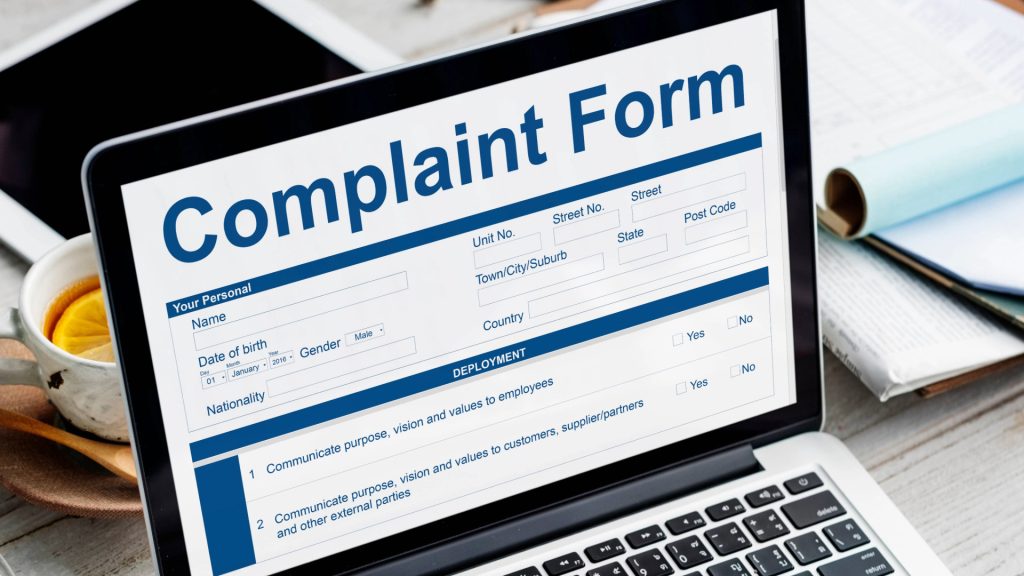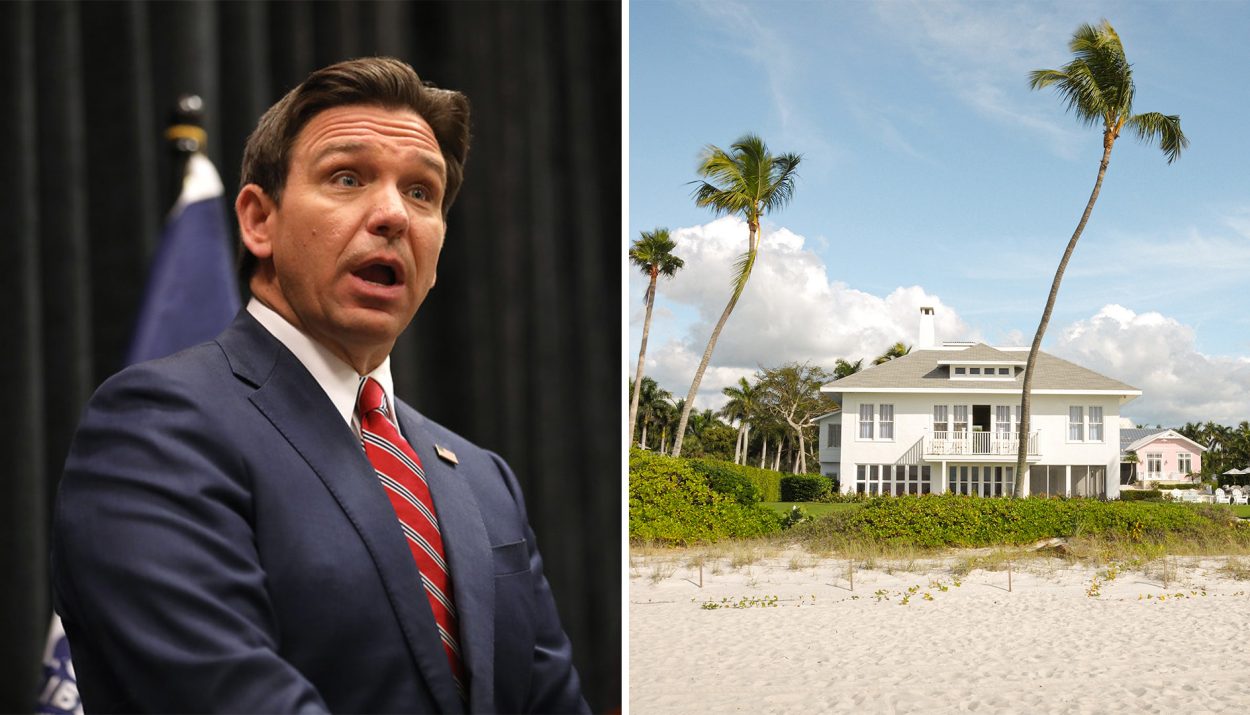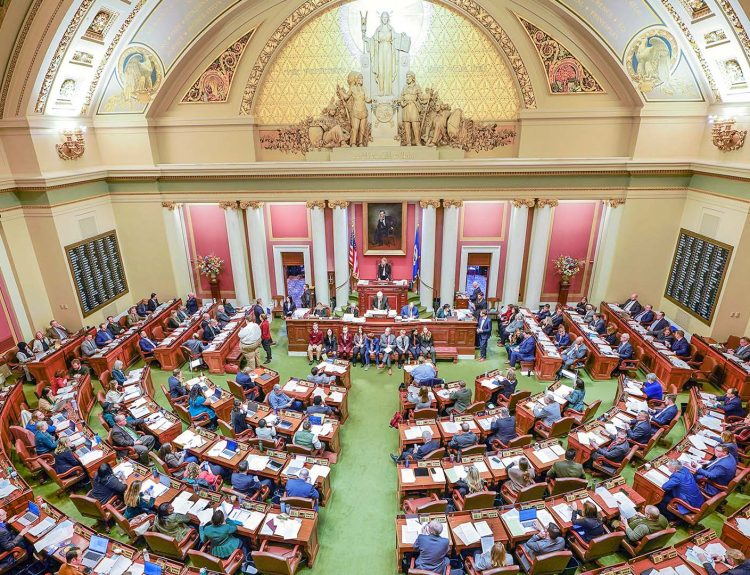The Florida State Senate has recently approved a legislative proposal which is aimed at tightening regulations on the short-term vacation rental market. The legislation particularly targets industry giants like Airbnb and Vbro. This move signifies a departure from previous local-level oversight, stirring up a contentious debate about the balance between state intervention and local autonomy within the vacation rental industry.
Statewide Oversight Over Local Regulations
The proposed legislation, SB 280, issued by the Florida state senate, aims to centralize control over short-term vacation rentals by granting the Florida Department of Business and Professional Regulation (DBPR) authority to regulate the market statewide.

This single move has caused chaos, as it would override existing local regulations and impose uniform standards across Florida, is implemented. Governor DeSantis commented, “I’m carefully reviewing the bill and listening to input from various stakeholders. We want to ensure any decision aligns with the best interests of Florida residents and our tourism industry.”
What Are the New Rental Requirements?
SB 280 introduces several new requirements for short-term vacation rentals, including occupancy limits and registration mandates.

Rental properties in Florida are subject to a maximum occupancy of two individuals per bedroom, with additional occupants allowed in common areas. Moreover, these property owners would be required to register their places with the local administrations to guarantee compliance with the state regulations.
Mandate for Dedicated Response Personnel
This newly proposed legislation mandates that short-term vacation rentals have dedicated personnel available at all times to address renter complaints and emergencies.

The aim of this requirement is to enhance management and ensure the rapid resolution of issues affecting guests’ experiences. The people residing in the community state that 24/7 availability of response personnel is crucial for addressing issues promptly and maintaining the reputation of vacation rental properties.
Creation of a Statewide Database and Tax Collection
The bill SB 280 seeks to establish a centralized database of all short-term vacation rentals in the state, managed by the DBPR. Moreover, the bill aims to streamline tax collection by requiring advertising platforms like Airbnb and Vrbo to collect and remit specified taxes to county authorities.

As the tax officials comment, “The establishment of a statewide database for vacation rentals streamlines tax collection efforts, ensuring compliance and equitable revenue distribution.”
What Are the Criticism and Concerns Regarding Enforcement?
The critics of this new bill raise concerns about the adequacy of enforcement measures, particularly regarding noise complaints and property violations.

There are some who argue that the bill may need to address these issues more effectively, as they highlight the potential challenges in implementation. “The lack of clarity on enforcement mechanisms raises questions about the bill’s practical implications and its ability to address existing challenges,” a legal expert pointed out.
What Is the Economic Significance of Florida’s Vacation Rental Market
Florida’s vacation rental market plays a significant role in the state’s economy, attracting millions of tourists annually.

The market generates billions of dollars in revenue and provides opportunities for homeowners to earn passive income by renting out their properties to visitors through numerous ways, like the infamous Airbnb. An Economic Development Official remarks, “The vacation rental market plays a vital role in Florida’s economy, generating substantial revenue and supporting local businesses.”
Airbnb’s Contribution to Florida’s Economy
Talking about Airbnb, Airbnb has emerged as a major player in Florida’s vacation rental market, contributing substantially to the state’s economy through tourism taxes.

In the year 2023 alone, this company renting out houses reported delivering $387 million in tourism taxes on behalf of hosts in Florida, underscoring the platform’s economic significance.
Oppositions Call for Veto
The bill SB 280 is not left unattended, as despite the economic contributions of short-term vacation rentals, SB 280 faces opposition from various stakeholders.

Those who are criticizing this new bill argue that the bill’s provisions could have adverse effects on the tourism industry and local governance, prompting calls for Governor DeSantis to veto the legislation.
What Are the Stakeholder Reactions?
The stakeholders are concerned about SB 280. Stakeholders, including Airbnb, Vrbo, and the Florida Realtors group, have expressed concerns about SB 280 and advocated for alternative approaches to regulating the vacation rental market.

The Florida Alliance for Vacation Rentals (FAVR) has urged Governor DeSantis to veto the bill, mentioning its potential negative impact on the industry.
Potential Impacts on Tourism and Local Governance
SB 280 has the ability to significantly impact the state’s tourism industry as well as local governance structures. This bill’s provisions could reshape the vacation rental market landscape, affecting both property owners and visitors at the same time.

Real Estate Experts point out, “The future of Florida’s rental market hinges on the outcome of SB 280 and its implications for property owners and investors.”
Pending Decision by Governor DeSantis
After considering everything, despite getting a lot of criticism and concerns from several stakeholders, the fate of SB 280 now rests with Governor Ron DeSantis, who has yet to receive the bill for consideration.

He is left confused as pressure mounts from both proponents and opponents of the legislation. Governor DeSantis faces a critical decision on whether to sign the bill into law or veto it.
What Challenges Airbnb Faces?
Similar to other players in the vacation rental industry, Airbnb, which is one of the most used rental companies, faces challenges stemming from regulatory changes and evolving market dynamics.

Industry Analysts point out, “Airbnb faces regulatory hurdles and market competition, but its resilience lies in its ability to adapt and innovate.” To fit in better and avoid any great loss, The company must navigate shifting legislative landscapes while maintaining its position as a leading platform for short-term accommodations. An Airbnb representative stated, “We’re committed to navigating challenges while continuing to provide exceptional experiences for our hosts and guests.”
Evolving Guest Experience on Airbnb
In response to changing consumer preferences, Airbnb has adapted its platform to offer a diverse range of accommodation options, including private rooms and entire homes. To support this, Airbnb hosts commented, “Guests now have more options, from cosy rooms to entire homes, creating a personalized travel experience.”

The company continues to fight against the market dynamic, as it aims to innovate and enhance the guest experience and meet evolving travel needs. Many people still have a positive review of the company. The optimism of the public can be seen in a traveller’s comments, “I appreciate the variety on Airbnb; it lets me find accommodations that suit my preferences and budget.”
Chesky’s Vision for Airbnb
Airbnb co-founder and CEO Brian Chesky envisions a platform that fosters meaningful connections between guests and hosts while promoting accessibility and affordability.

His exact words are, “At Airbnb, we’re building a platform that fosters connections and promotes inclusivity, making travel accessible to all.” The CEO of Airbnb’s vision drives the company’s mission to create different travel experiences for all kinds of users all over the world. Many point out how Chesky’s vision resonates with the evolving needs of travellers seeking authentic experiences.
Chesky’s Concept for Accessibility
Airbnb’s CEO and co-founder, has a vision for Airbnb that includes promoting accessibility and inclusivity within the travel industry. He cited, “Accessibility is at the core of Airbnb’s mission, empowering individuals of all backgrounds to explore the world and create lasting memories.”

The company aims to address affordability challenges and expand access to unique travel experiences for individuals of all backgrounds.
What Are the Challenges to Airbnb’s Business Model?
There is no doubt that Airbnb is one of the leading rental companies. Still, despite its success, Airbnb faces challenges in its business model, including regulatory scrutiny, competition from traditional lodging providers, and economic uncertainties.

“We’re monitoring Airbnb’s operations to ensure compliance with local regulations and address any concerns about its impact.” Said a regulatory official. Addressing these issues requires strategic planning and adaptation to market dynamics as soon as possible. The Airbnb Legal Team spoke up about these challenges, stating, “Navigating regulatory challenges is part of our commitment to responsible business practices and collaboration with local authorities.”
Impact of Florida’s Rental Provision
As for the bill, if signed into law, SB 280 could have far-reaching implications for Florida’s rental market, affecting property owners, rental platforms, and tourists.

The success or failure of this bill would affect and shape the upcoming landscape of short-term vacation rentals in the state of Florida. The Local Residents point out, “The new rental provision could affect property values and neighbourhood dynamics, sparking concerns among homeowners.” The legislation’s enforcement and implementation will tell what the future holds for Florida.
Division Among Florida Residents
SB 280 has sparked division among Florida residents, with stakeholders holding differing views on the bill’s importance and potential consequences.

Local business owners point out, “Opinions are split on SB 280; some see it as necessary regulation, while others fear it will stifle the vacation rental market.” The debate underscores the complexity of regulating the vacation rental industry and balancing competing interests.
Is There a Shift in Airbnb Ownership Dynamics?
The rental company Airbnb’s ownership dynamics have evolved over time, with a growing number of hosts and homeowners managing multiple properties on the platform over the years.

This trend reflects changes in the vacation rental market landscape and stresses the need for flexibility among industry players as the competition increases with time.
Rise of Multi-Property Hosts
There is a huge increase in the number of multi-property hosts throughout the world, especially on Airbnb. These multi-property hosts now account for a massive portion of Airbnb listings, signalling a shift in ownership patterns within the vacation rental market.

These homeowners manage multiple properties and play a crucial role in shaping the guest experience on Airbnb, helping to make or break the future of rentals in the country. They say, “Managing multiple properties on Airbnb offers scalability and income opportunities, but it also requires efficient management and guest satisfaction.”
Impact on Guest-Host Interactions
The rise of multi-property hosts on Airbnb has implications for guest-host interactions, with guests encountering a diverse range of hosting styles and accommodations.

“Interacting with guests from diverse backgrounds enriches the hosting experience and fosters cultural exchange,” an experienced host commented. Balancing personalized experiences with efficient management is essential for ensuring positive guest experiences.
Affordability Challenges for Guests
One of the most significant challenges for guests is affordability. Despite offering a range of accommodation options, affordability remains a challenge for guests using platforms like Airbnb.

Consequently, if rental prices rise, it will lead to further economic uncertainties, which may limit access to short-term accommodations for budget-conscious travellers in the near future.
Public Perception of Airbnb’s Evolution
The public’s perception of Airbnb’s evolution is crucial, as it reflects ongoing debates surrounding the platform’s impact on local communities, housing markets, and tourism.

Understanding and addressing these perceptions is essential for Airbnb’s continued growth and sustainability. The tourism officials cite, “Understanding public perceptions is essential for Airbnb to address concerns and maintain its reputation as a responsible travel platform.”
How Is the Future Outlook for Florida’s Rental Market?
The outcome of SB 280’s passage will significantly influence the future trajectory of Florida’s rental market. Industry Conference Panelist stated, “We’re closely monitoring the legislative landscape to anticipate shifts in market dynamics and adapt our strategies accordingly.”

Depending on Governor DeSantis’s decision, the state may see shifts in regulatory frameworks, market dynamics, and stakeholder relationships.






